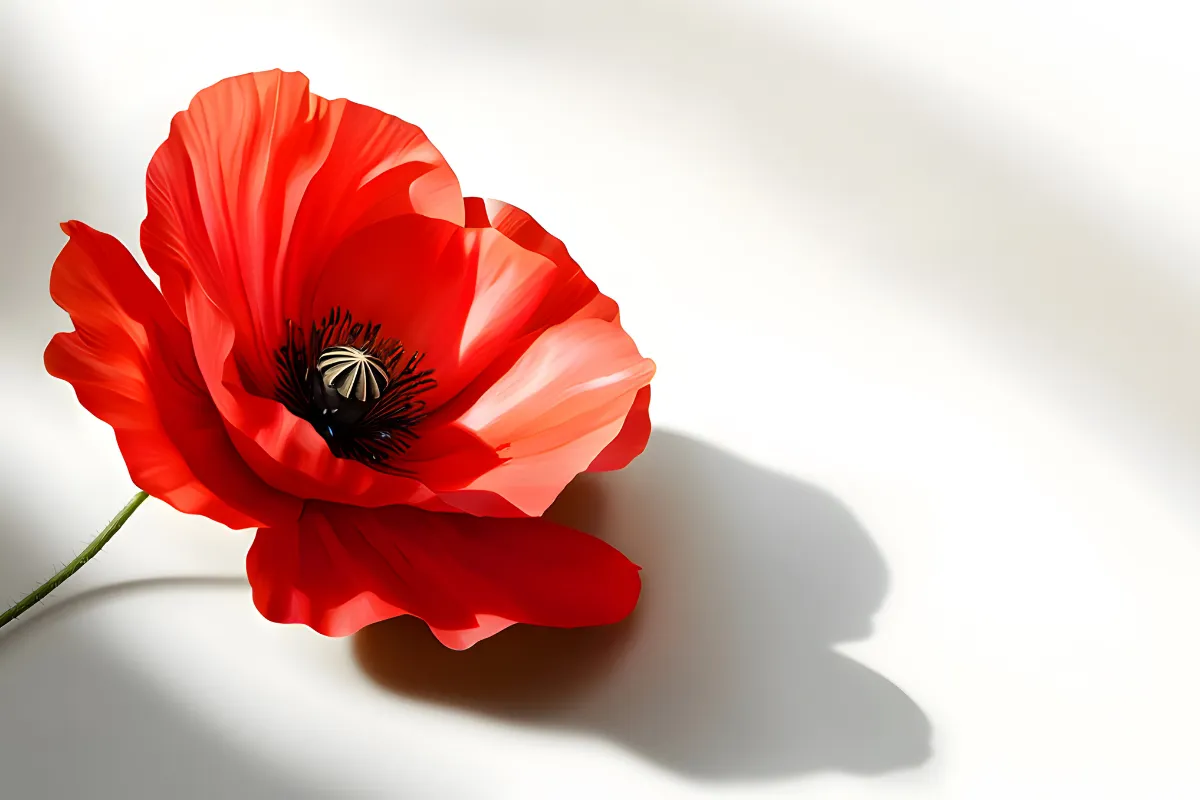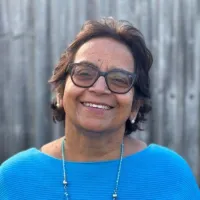Blog
Practical insights, honest reflections, and compassionate guidance for navigating grief and life's challenges. Here you'll find articles that help you understand what you're going through and give you tools to move forward with hope.

Remembrance Day 2025: Honouring the Fallen and Healing Personal Grief
On the 11th hour of the 11th day of the 11th month, silence falls across the UK. But for many of us, that silence carries more than remembrance of war.
Every November, many of us pause for two minutes of silence. We pin poppies to our coats. We gather at memorials. We bow our heads.
Remembrance Day in the UK isn't just about looking back at history. It's about carrying forward the lessons of loss, resilience, and hope. For many, it's a solemn national moment. But for others, it's also deeply personal. Because grief is not confined to one war, one day, or one kind of loss.
Whether you've lost someone in military service, through suicide, or in a very different but equally life-altering way, grief has a way of linking us all. Grief isn't restricted to bereavement. Whenever there is a significant change in a familiar pattern of behaviour, it can also produce feelings of loss and grief. Unresolved grief is not only negative it is cumulative and it doesn't just go away with time.
Why Remembrance Day 2025 Still Matters
The origins of Remembrance Day go back to the end of the First World War, when the Armistice was signed on 11th November 1918. What was meant as a tribute to those who gave their lives in "the war to end all wars" has become a tradition carried through every generation since.
Many of us wear the red poppy, sold by the Royal British Legion, not only to honour the dead but to acknowledge the lasting impact of war on those who survived. Families who lost loved ones. Soldiers who returned but carried invisible wounds. Communities that were changed forever.
In the UK, we actually commemorate twice. Armistice Day on 11th November marks the exact moment the guns fell silent at 11am in 1918. Then, on Remembrance Sunday (the second Sunday in November), we hold our main national ceremonies. At the Cenotaph in London, wreaths are laid, and communities across the country gather at war memorials.
And if we pause long enough, Remembrance Day also invites us to reflect on our own grief. How we carry the memories of those we've lost, whether or not they wore a uniform.
Remembrance Sunday vs Armistice Day: Understanding the Difference
Many people get confused about the two dates. Here's the simple explanation.
Armistice Day is always 11th November. It's the actual anniversary of when the First World War ended. At 11am, we held the two minute silence to mark the exact moment the fighting stopped.
Remembrance Sunday is the Sunday closest to 11th November. This is when the main ceremonies happen. The King lays a wreath at the Cenotaph, veterans march, and local communities hold services at war memorials.
Both days matter. Both give us space to remember.
For details about this year's official ceremonies, visit royal.uk or check local times on gov.uk.
The Two Minute Silence: Honouring Grief We Don't Speak About
When I think of the two minutes of silence, I'm struck by how much grief often lives in silence.
We don't always talk about it. We downplay it. We say, "I'm fine" when we're not. And for some, the silence becomes unbearable.
I know this deeply because I experienced multiple bereavements growing up, including one of my own sister who died by suicide. Added to the other losses, it shook the foundations of my world.
On Remembrance Day, while others reflect on wars and national sacrifice, I also remember her. I remember the silent battles that so many people fight inside their own minds. The struggles that don't make the news or get commemorated with wreaths and parades.
Suicide, like war, leaves devastation in its wake. Families torn apart. Unanswered questions. A search for meaning that doesn't always yield clear answers.
This is why Remembrance Day is not only about remembering the past. It's about asking ourselves: How do we care for the living? How do we support those who are struggling now? How do we honour the memory of those we've lost by preventing more lives from being cut short?
Different Poppies, Different Meanings
While most people wear the traditional red poppy, you might notice other colours too.
The red poppy is the most common. It represents remembrance and hope, and supports the Royal British Legion's work with veterans and their families.
Some people wear a white poppy to remember all victims of war and to promote peace.
Others wear a purple poppy to remember animals who served and died in conflicts.
And the black poppy commemorates the contributions of African, Black, Caribbean, and Pacific Island communities to wars.
Whatever colour you choose, the meaning remains the same. We remember. We honour. We reflect.
Building Resilience in the Face of Loss
Unresolved grief doesn't end when the ceremony is over, or when the silence lifts. It stays with us, sometimes for years, sometimes in unexpected ways.
But here's what I've learned, both through my personal journey and through guiding others.
Resilience isn't about "moving on." It's about finding a way forward while carrying the memory of your loved one with you.
Grief isn't just about death. It can come from broken trust, lost opportunities, or changes that shift the shape of our lives.
Silence can be healing, but not if it becomes avoidance. We need spaces where we can speak honestly about our pain and find compassionate listeners.
Resilience is built in small, intentional steps. Taking care of your wellbeing. Allowing yourself to feel. Seeking support when the weight is too much to carry alone.
A Thoughtful Question for You
As you reflect this Remembrance Day, I invite you to pause and ask yourself:
What am I carrying in silence that deserves to be honoured, spoken aloud, or released.
Your grief may not look like anyone else's. And that's okay. There is no right or wrong way to remember.
Practical Ways to Honour Remembrance Day 2025 (and Your Own Journey)
If you're wondering how to make this day meaningful for you, here are some gentle ideas.
Take part in the two minute silence at 11am on 11th November, wherever you are. Whether you're at home, at work, or out shopping, those two minutes matter.
Visit a memorial or lay flowers, even if it's just in your own garden, as a personal act of remembrance.
Light a candle at home for someone you've lost, whether they were in service or not.
Journal about your memories and the lessons they left you with.
Reach out to someone who might be struggling today. A simple "thinking of you" can mean the world.
Support the Royal British Legion's poppy appeal. Buying a poppy helps fund vital support for veterans and their families.
Create your own meaningful remembrance activity. Do what is meaningful to you, as you and your journey are unique. There's no 'one size fits all'.
Most importantly, allow yourself to feel whatever comes. Grief is not weakness. It's proof that you have loved.
You Don't Have to Do This Alone
Every year, Remembrance Day reminds us of collective sacrifice and loss. But it also quietly reminds us of the grief we carry personally, sometimes silently.
If you're reading this and wondering if you might be carrying more than you realise, feeling heavy, stuck, or just disconnected from life, it may be a sign of unresolved grief or hidden wellbeing gaps.
If today's reflection has stirred something in you, that's a sign worth paying attention to.
I've created two free tools to help you reflect and assess how you're doing:
Hidden Wellbeing Gaps Quiz – a simple check-in that reveals the areas of your life where you may be running on empty without realising it.
Grief Assessment Quiz – a gentle way to understand how well you're coping with loss, and whether you might benefit from extra support.
Both take just 10 minutes each, and many people find clarity simply by pausing to reflect. Remember, the first step to change is awareness.
You might also find these topics helpful: understanding unresolved grief, signs you need grief support, and mental health during difficult times.
For additional support and guidance, explore my free resources on grief and healing.
Final Reflection
Remembrance Day asks us to look back, honour, and remember. But it also asks us to look forward, to building a future where fewer lives are lost to war, to despair, or to silence.
Whether you're observing the two minute silence at the Cenotaph, watching the Remembrance Sunday service on television, or simply wearing your poppy as you go about your day, you're part of something bigger. A collective act of remembrance that spans generations.
If you take just one thing away today, let it be this: your grief matters, your story matters, and you don't have to carry it alone.
This Remembrance Day 2025, let's remember the fallen, honour the living, and hold space for our own journeys of healing.
Want to collaborate?
Let's talk. I'd love to hear how we can support each other.
Connect with me
Find me on social media or drop me a message. I'd be happy to connect and answer any questions you might have.
© Copyright 2026. Ghulam Fernandes. All rights reserved.

